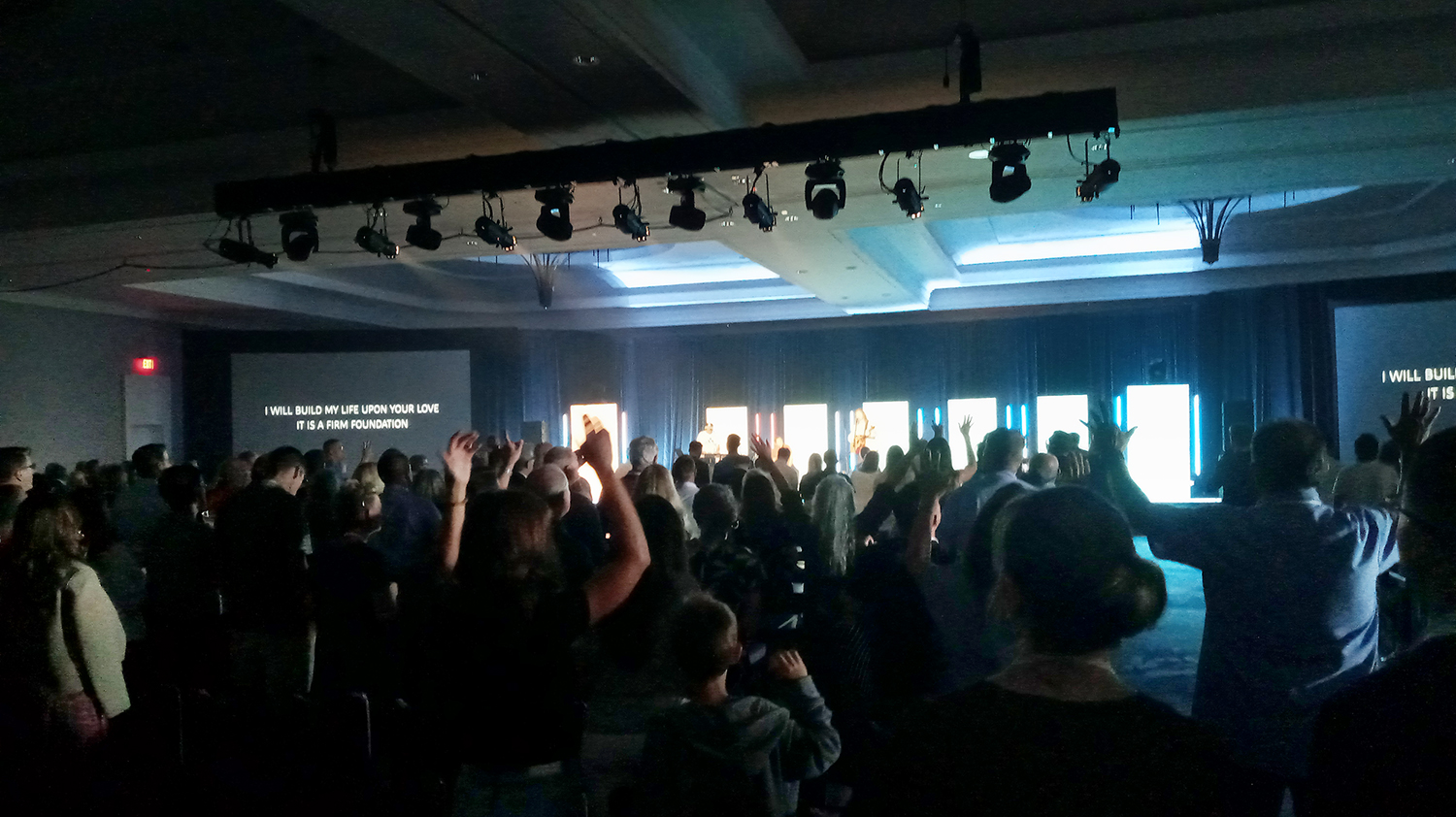Campbell decided instead to approach Christian nationalists as a missionary, “leading with kindness and generosity.” What Christian nationalists needed, he decided, was conversion, not confrontation.
Attendees sing along wih the band at a Turning Point USA event earlier this year. Photo courtesy Caleb Campbell
“I started thinking, how do I actually bring Jesus into this person’s life, because they’re being sold a version of Jesus that is not accurate biblically and is going to end up disappointing them,” he said.
He is particularly concerned about what he called “seeker-sensitive Christian nationalism” that seeks to attract new churchgoers through worship services that praise Jesus and “own the libs” at the same time.
“It’s a brilliant church-growth strategy,” said Campbell.
“I’ve been at this for long enough to know if I got a car dealership-size American flag, put it in front of my building and did a ‘why biblical justice is not social justice’ sermon series, I could get 1,000 people,” he said.
Rather than helping people deal with their anxieties about cultural change or focusing on people’s faith, Campbell argues, this strategy fuels anger by giving believers someone to blame for their problems.
This kind of seeker-sensitive Christian nationalism has been on display over the past year at Freedom Night in America, a monthly revival and political rally hosted by Charlie Kirk, head of Turning Point USA, at Dream City, a Phoenix megachurch not far from Campbell’s congregation.
Freedom Night services, which are streamed by both Dream City and Turning Point, have featured Kirk and conservative figures like writer Eric Metaxas, “Fox and Friends” host Pete Hegseth and John Cooper, lead singer of the Christian band Skillet.
The events look like a typical megachurch service, beginning with a few worship songs, followed by some announcements, an offering, and even an altar call. But instead of a sermon, there’s a talk by Kirk, who is often joined by a guest.
At the Freedom Night in October, Dream City pastor Luke Barnett took to the stage as the band finished their set, repeating the last line of an old-school worship tune, singing, “You alone are my heart’s desire and I long to worship you.” Barnett then introduced Kirk that night as a religious teacher rather than a conservative activist.
“If there’s anyone who I believe that God has raised up in America, to share about life inside the kingdom, and what it looks like, what it can look like to our nation today, it’s our guest tonight, Charlie Kirk,” he said.
As Kirk began, he quoted Jeremiah 29:27, a popular Bible verse, giving it a new twist. The verse, addressed to the people of Israel during their captivity in Babylon, is often translated as, “seek the welfare of the city where I sent you into exile,” followed by a command to pray. For Kirk, the verse became a call to political action.



